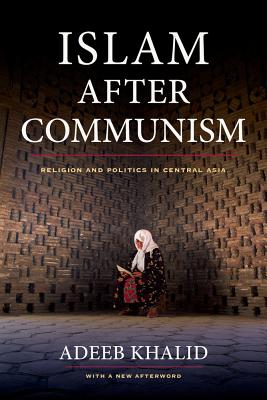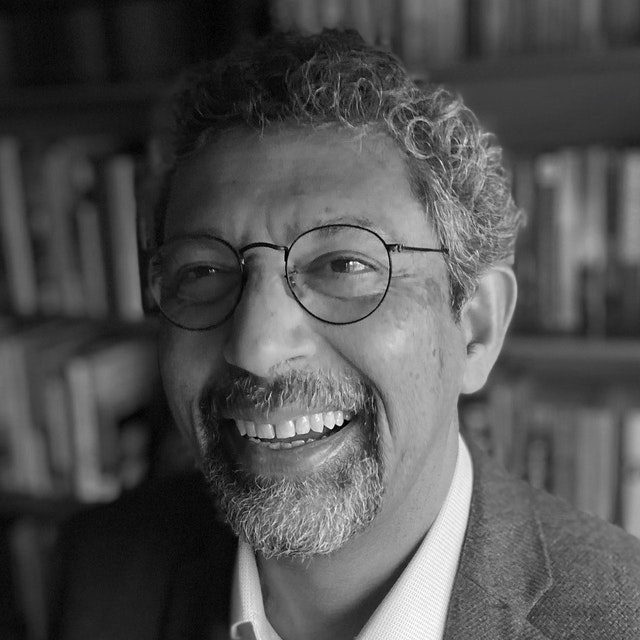

 University of California Press
University of California Press
Islam After Communism: Religion and Politics in Central Asia


Key Metrics
- Adeeb Khalid
- University of California Press
- Paperback
- 9780520282155
- 9.12 X 5.96 X 0.68 inches
- 0.85 pounds
- Religion > Islam - General
- English
 Secure Transaction
Secure TransactionBook Description
Islam after Communism reasons that the fear of a rampant radical Islam that dominates both Western thought and many of Central Asia's governments should be tempered with an understanding of the politics of antiterrorism, which allows governments to justify their own authoritarian policies by casting all opposition as extremist. Placing the Central Asian experience in the broad comparative perspective of the history of modern Islam, Khalid argues against essentialist views of Islam and Muslims and provides a nuanced and well-informed discussion of the forces at work in this crucial region.
Author Bio
My work centers on the history of the sedentary societies of Central Asia from the time of the Russian conquest of the 1860s to the present. I am particularly interested in the transformations of culture and identity as a result of historical change. The fate of Islam under Tsarist and Soviet rule has occupied a central place in my research. I am also interested in questions of nationhood and national identity, of empire and colonialism, and of the politics of anticolonialism.
My research has been supported by grants from a number of foundations: the Guggenheim Foundation, the Carnegie Corporation, the National Endowment for the Humanities, the American Council of Learned Societies, ACCELS/ACTR, the National Council for Eurasian and East European Research, and IREX. I have held visiting research positions at the Maison des Sciences de l’Homme in Paris and at the Kluge Center for Scholars at the Library of Congress in Washington, DC.
Over the years, I have published three books, The Politics of Muslim Cultural Reform: Jadidism in Central Asia (University of California Press, 1998), Islam after Communism: Religion and Politics in Central Asia (University of California Press, 2007; reissued with a new afterword in 2014), and Making Uzbekistan: Nation, Revolution, and Empire in the Early USSR (Cornell University Press, 2015).
Islam after Communism won the 2008 Wayne S. Vucinich Book Prize of the American Association for the Advancement of Slavic Studies “for the most important contribution to Russian, Eurasian, and East European studies in any discipline of the humanities or social sciences published in English in the United States in the previous calendar year.” In the fall of 2016, Making Uzbekistan was awarded the Reginald Zelnik Book Prize in History by the same organization. The book also won Honorable mention for the Joseph Rothschild Prize in Nationalism and Ethnic Studies awarded by the Association for the Study of Nationalities.
Central Asia: A New History from the Imperial Conquests to the Present will be published in spring 2021 by Princeton University Press, As the name suggests, it is a general history of Central Asia from the middle of the eighteenth century to the present. It provides an integrated narrative of the “Russian” and “Chinese” parts of Central Asia.
Education & Professional History
University of Punjab, Lahore, BA; McGill University (Montreal), BA; University of Wisconsin (Madison), MA, PhD
My scholarly work is on Central Asia, which lies at the intersection of (and is integrally a part of) both the Muslim and the Russian/Soviet worlds. I teach a variety of courses on Central Asia, Russia, and the Middle East. Thematically, I am interested in issues connected with culture and cultural change, empire and colonialism, and nationhood in its various manifestations.
At Carleton since 1993.
Organizations & Scholarly Affiliations
Central Eurasian Studies Society (president, 2005-06)
Association for Slavic, East European, and Eurasian Studies (member, executive board, 2013-15)
American Historical Association
Association for the Study of Persianate Societies
Ottoman & Turkish Studies Association
European Seminar on Central Asian Studies
Source: Carleton University and Princeton University Press
Videos




Community reviews
Write a ReviewNo Community reviews